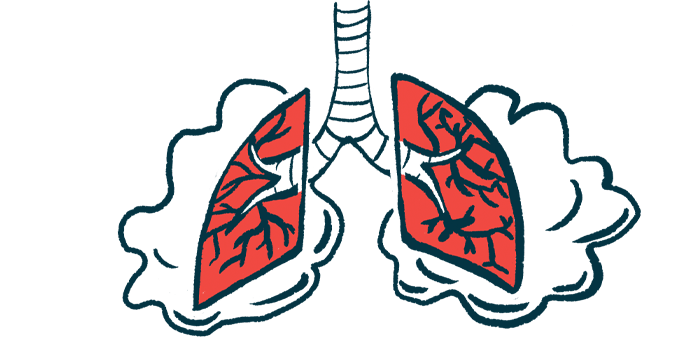CF therapy ETD001 granted FDA’s rare pediatric disease designation
Trial in Europe now testing treatment's safety, efficacy in mucus clearance
Written by |

The U.S. Food and Drug Administration (FDA) has granted rare pediatric disease designation to ETD001, an investigational therapy aiming to improve mucus clearance in people with cystic fibrosis (CF).
The designation is awarded by the FDA to aid the development of treatments for serious or life-threatening rare diseases — those affecting fewer than 200,000 people in the U.S. — that primarily affect patients younger than age 18. With it, ETD001’s developer Enterprise Therapeutics may be eligible to receive a priority review voucher from the FDA if the therapy is approved. That voucher can be used in an application for a different product or can be transferred or sold to another company.
“We’re delighted with the FDA’s decision and would like to thank the Office of Pediatric Therapeutics and the Office of Orphan Products Development for their consideration,” John Ford, PhD, CEO of Enterprise, said in a company press release.
Enterprise noted that a Phase 2a clinical trial (NCT06478706) of ETD001, taking place across more than a dozen sites in Europe, began dosing patients during the summer.
“As we progress through our Phase 2a trial of ETD001, this [rare pediatric disease] designation will further support our mission to advance this novel approach for treating [people with CF] with the highest unmet medical need, as rapidly as possible,” Ford said.
Developer Enterprise ‘thrilled’ with rare pediatric disease designation
Cystic fibrosis, diagnosed in infancy, is a rare disease caused by mutations that lead to no or faulty production of CFTR protein in patients. In healthy people, CFTR helps regulate the water content in mucus. In the absence of CFTR or when CFTR doesn’t function properly, thick and sticky mucus builds up in the lungs and other organs, leading to a range of disease symptoms.
CTFR modulators are a class of medicines that boost the functionality of defective CTFR proteins. However, these therapies are not effective for individuals with certain CF-causing mutations. In addition, some CF patients cannot tolerate the side effects that can accompany these treatments.
EDT001 instead targets a different protein, known as the epithelial sodium channel. The therapy aims to block this protein’s activity to increase the amount of water in mucus, and as a result, improve its clearance and enhance lung function in CF patients. Because it targets the epithelial sodium ion channel, EDT001 is expected to work for all people with CF, regardless of their CFTR mutation type.
The ongoing Phase 2a clinical trial aims to explore ETD001’s safety and efficacy in the approximately 10% of CF patients who are ineligible for or do not currently receive CFTR modulators, according to the company.
The main efficacy goal is to evaluate the treatment’s impact on lung function, assessed with a measure called forced expiratory volume in one second, or FEV1, which tracks how much air someone can blow out in a forceful breath.
[This designation] will give Enterprise access to valuable incentives and support from the FDA during the development of ETD001.
ETD001 was previously shown to be well tolerated in healthy people in a Phase 1 trial (NCT04926701). In a preclinical study in sheep, ETD001 effectively cleared mucus from the airways.
Annabella Amatulli, head of regulatory affairs at Enterprise, said the company was “thrilled” by the FDA’s rare pediatric disease designation, calling it “a regulatory framework intended to encourage and accelerate innovative therapies.”
Amatulli said the designation “will give Enterprise access to valuable incentives and support from the FDA during the development of ETD001.”







